Not long after I arrived in Bangladesh, something very mundane happened to me that just happened to shatter my perspective. I was walking home, holding onto the remains of my lunch and naively expecting to encounter a rubbish bin along the way. My gathering confusion turned into realisation when the bin never materialised, and it dawned on me exactly how much I took for granted. In the UK, street furniture like pedestrian crossings, operational traffic lights and bins are standard. I never really cared from where the infrastructural backbone of urban society came. I barely even noticed it was there, until it wasn’t.
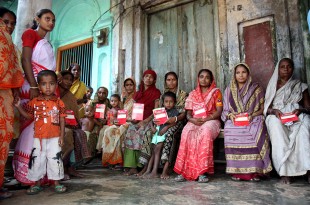
Bangladeshi people live in a country where 47 million of their compatriots live below the poverty line, and where there are only 4 hospital beds for every 10,000 people. Efficient waste management is the least of their concerns. Government organisations lack the capacity to provide "basic" social services countrywide, let alone address systemic societal issues.
This shortfall must still be accounted for. The question is: by whom?
I’ve spent the past 6 months working for an institution that, with support from the UK's Department for International Development, is striking at the root of the problem: it is not lobbying the government for change, it is inspiring the current generation of Bangladeshi youth to become the change.
At Bangladesh Youth Leadership Center (BYLC), the challenge that we face is how to break the conceptual bond between leadership and authority. Traffic in the capital city of Dhaka is crippling, for example, but the roads are bloated with under-occupied private cars. Whose responsibility is it: the state's or the citizens'?
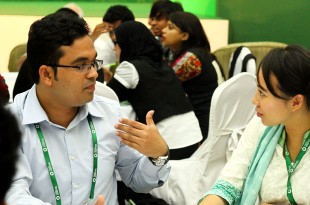
Over the past 3 days, BYLC has been hosting a youth leadership summit in Dhaka. The purpose of the conference is to educate and inspire the participants with leadership theory and experiences, but also urge them to explore how the roles that they play as individuals can be used to mobilise their communities around issues of public service. It’s a matter of mind-set: as one young person realised, "there is no 'someone else', that 'someone' is me."
Sadly, in the context of Bangladesh, enlightenment is not enough. In a country where 52% of the population is below the age of 25, and 1.8 million young people compete for only 200,000 jobs, the youth are deprived of opportunity. Just by way of being in Dhaka, and having the opportunity to attend the conference, these delegates are some of the most privileged in the country. The summit is a way of showing them the potential of this privilege.
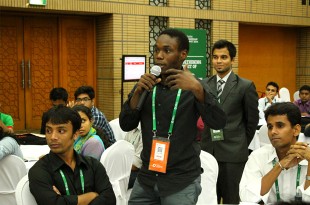
The problem with events like this, however - and with education in development generally - is that the pay-off will be a long time coming. BYLC is the first institution in Bangladesh to approach leadership as something that can be taught, and we understand that it is only through incremental, sustained momentum that systemic change can truly be achieved. Student by student, we are working towards creating a poverty-free Bangladesh, driven by the next generation of homegrown leaders.
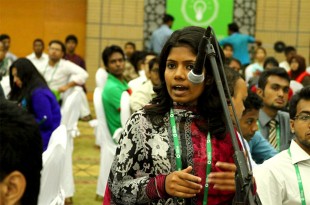
Risalat Khan is a BYLC alumnus who studied at Amherst in the USA. Despite having the opportunity to stay in Colorado, he later returned to Bangladesh. He is starting up a rooftop agriculture business in an attempt to address food insecurity and generate employment for climate refugees. His motivation behind this endeavor, and behind his continued involvement with BYLC, is to share the opportunities that he has been lucky enough to experience with others. It is, he said to the delegates, his responsibility.
Any UK graduate seeking employment in the development sector might find this sentiment to be an overplayed rhetoric, but in Bangladesh it has the potential to be revolutionary. Working on this conference, and being involved in the planning and conception of the agenda, I underwent a second epiphany: it was not just my comfortable way of life in the UK, but my mindset and my perspective that I took for granted too.
At BYLC, we realise that people only take ownership of something that they have created, and so we asked participants to congregate into groups according to their interests. The culmination of the program was a collectively produced communique document with adaptive solutions to issues that the youth delegates felt deeply about. The suggestions included flood prevention surveys for vulnerable regions of the country, mobile libraries for isolated communities, and mentoring for slum dwellers on the dangers of early marriage.
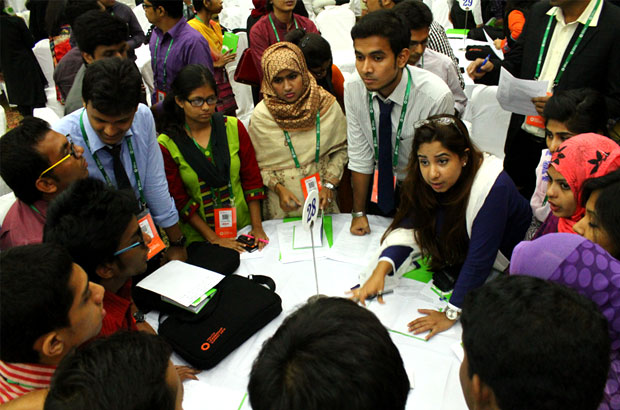
Overseas aid often comes under scrutiny, especially in these times of austerity, but I think this is because it is most easily portrayed and understood as the net total of singular victories. Bangladesh will not develop because of singular victories; in this country, we must help its younger generation as it propogates a shift in perception that will reap benefits only after decades of continued education and empowerment. Authority is a person, a position, a noun; public leadership is a mentality that must be nurtured. That is the difference that BYLC, and the Youth Leadership Summit, is trying to make with the help of UK aid.
---------------------------------------------------------------------------------------------
Please note, this is a guest blog. Views expressed here do not necessarily represent the views of DFID or have the support of the British government.
Keep in touch. Sign up for email updates from this blog.

Recent Comments